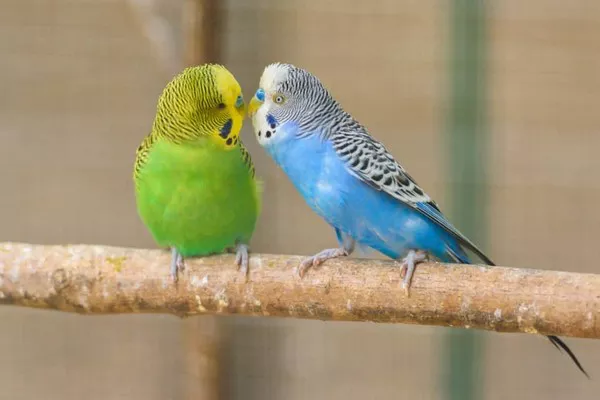African Grey Parrots, known for their exceptional intelligence and captivating personalities, are native to the dense rainforests of West and Central Africa. To understand their nutritional needs in captivity, it’s imperative to delve into their natural habitat and explore the diverse array of foods that African Greys eat in the wild.
The Wild Menu
Variety of Fruits
In their natural habitat, African Greys feast on an assortment of fruits that thrive in the rainforest canopy. Mangoes, papayas, figs, and guavas are among the delectable options available to them. These fruits not only provide essential vitamins but also contribute to the parrot‘s hydration due to their high water content.
Nutrient-Rich Nuts and Seeds
African Greys are expert foragers, and in the wild, they derive a significant portion of their nutrition from nuts and seeds. This includes palm nuts, which are rich in healthy fats, and various seeds such as sunflower seeds. These foods are not only a source of energy but also contain essential nutrients crucial for the parrot’s overall well-being.
Abundance of Vegetables
Vegetables play a vital role in the wild diet of African Greys. Leafy greens like kale, collard greens, and Swiss chard offer a plethora of vitamins and minerals. Additionally, root vegetables like sweet potatoes are part of their natural diet, providing essential carbohydrates for sustained energy.
Protein-Packed Insects
In the wild, African Greys are opportunistic feeders, and insects are a valuable source of protein. Termites, caterpillars, and ants are some of the delicacies that these parrots seek out. Protein is crucial for their muscle development, feather health, and overall vitality.
The Importance of a Balanced Diet
Mimicking the Wild Diet in Captivity
Understanding what African Greys eat in the wild is essential for providing a balanced diet in captivity. Replicating the diversity of their natural diet helps ensure that pet African Greys receive the necessary nutrients for optimal health and longevity.
Commercial Pellets and Their Role
While mimicking the wild diet is crucial, it may not always be practical in a home setting. Commercial pellets designed specifically for African Greys can serve as a convenient and nutritionally complete alternative. These pellets are formulated to meet the dietary needs of these intelligent birds, providing a balanced mix of vitamins, minerals, and proteins.
Water – A Vital Component
Natural Hydration in the Wild
In their natural habitat, African Greys have access to various water sources. The fruits they consume, such as water-rich melons, contribute to their hydration. Additionally, rainforest rainfall provides an abundant and natural source of water for these birds.
Hydration in Captivity
In captivity, ensuring proper hydration is crucial. Providing fresh and clean water daily is a fundamental aspect of caring for African Greys. Regular monitoring of water intake is essential to prevent dehydration, a common concern for pet parrots.
Factors Influencing Dietary Preferences
Seasonal Variations
African Greys adapt their diet based on seasonal changes in their natural habitat. During certain times of the year, specific fruits and nuts may be more abundant, influencing the parrot’s dietary preferences. Understanding these patterns can guide caregivers in adjusting the pet’s diet accordingly.
Social Learning
In the wild, African Greys often forage in flocks, and there is an element of social learning in their feeding behaviors. In captivity, providing opportunities for mental stimulation through foraging toys and activities can mimic this social aspect, contributing to the parrot’s overall well-being.
Conclusion
Understanding what African Greys eat in the wild is essential for responsible pet ownership. By replicating the diversity of their natural diet and considering factors like seasonal variations and social learning, caregivers can ensure that these intelligent birds thrive in captivity. Whether it’s the succulent fruits, nutrient-rich nuts, or protein-packed insects, incorporating a variety of foods into their diet is key to promoting the health and happiness of African Greys in our homes.
Related Topics:
What Nuts Can African Greys Eat?
Can African Greys Eat Eggs?
Are African Greys Loud? (Or Are They Quiet?)

























